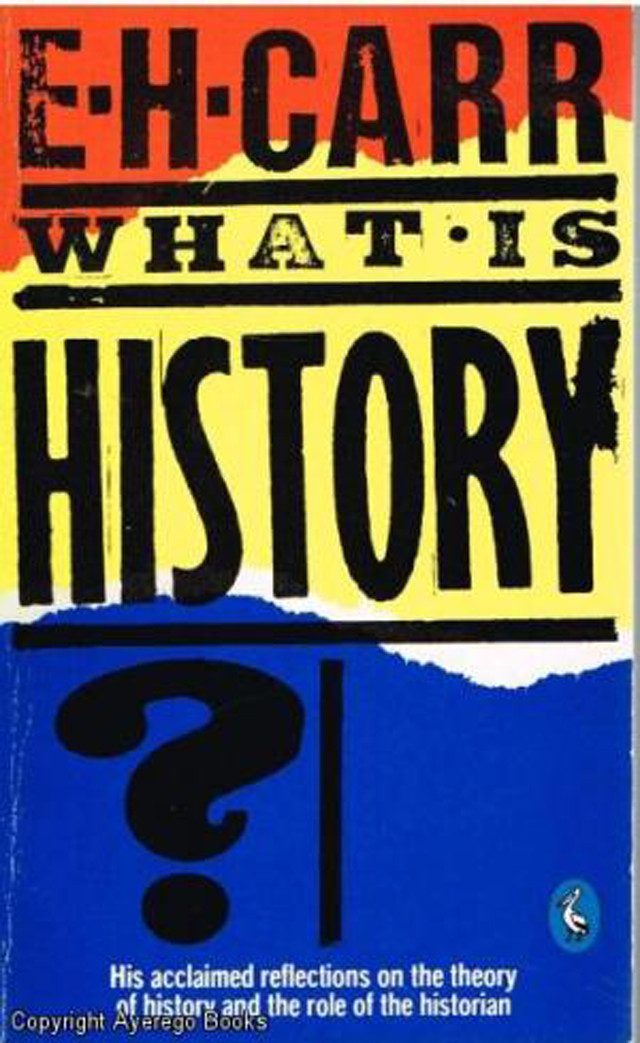
by Ward Chesworth Friday, July 21, 2017

Thanks to Kellyanne Conway, we have all become familiar with the term “alternative facts,” but how about alternative or counterfactual history? Alternative versions of history have been offered since Classical times. E.H. Carr dismissed them as “parlor games” or “red-herrings” in his 1961 book “What Is History?” But the alt-history concept has been trying to muscle its way into academic respectability since its prominent champion, Niall Ferguson, published an essay collection called “Virtual History” in 1997. Ferguson asked: If a particular, known factor in a historical event has turned out differently, how might subsequent history have changed? Eminent historian Richard Evans was dismissive, wondering whether Ferguson was not so much asking “what if” — reflecting a neutral intellectual curiosity — but “if only,” provoked by a subjective desire for a different outcome from whatever actually took place.
As you might expect, fiction writers did this before academics. At least three alt-history novels feature Franklin Delano Roosevelt as the pivot from which fiction diverges from reality. The earliest of these, with the splendidly loaded title, “It Can’t Happen Here,” was published by Sinclair Lewis in 1935. In it, Roosevelt loses his party’s nomination right from the get-go in 1932, so the New Deal never happens and the nation follows the pattern already set in Europe by turning toward fascism. Fascism was the flavor of the time so it’s no surprise that it provides the backdrop in the other two novels as well: “The Man in the High Castle” by Philip K. Dick, published in 1962, and Philip Roth’s 2004 novel “The Plot Against America.”
Novelists have license to imagine and extrapolate in a way that genuine historians wouldn’t dare. Science fiction in particular offers many examples. For instance, Harry Turtledove, a great exponent of alt-history, teamed with actor Richard Dreyfus to write “The Two Georges,” published in 1995 and set vaguely in the near future, about a world in which the Revolutionary War doesn’t occur. As Turtledove says, alt-history “isn’t really about the world you’re creating … It’s about the world in which you live, and gives you and your readers a funhouse mirror in which to see the real world.”
What if we put the history of Earth in a funhouse mirror? We could hypothesize what might have happened if Jupiter did not exist in the solar system, or if plate tectonics had failed on Earth, or if the planet had been subjected to a runaway greenhouse climate. In each case, we could defend reasonable consequences: Without Jupiter to block and deflect rogue asteroids, there would be no Earth; without plate tectonics to maintain a biosphere, Earth would die a Mars-like death; and if Earth had suffered a runaway greenhouse effect, it might have become a second Venus.
On a less cosmic scale, we could consider that Earth managed perfectly well without us for about 99.99 percent of geological time, as Stephen Jay Gould points out in his 1989 book “Wonderful Life: The Burgess Shale and the Nature of History.” Considering the Cambrian fossils of the Burgess Shale, Gould describes the quirky pathway that led to our evolution as a game of chance rather than the culmination of a grand design. He wrote: “We are here because one odd group of fishes had a peculiar fin anatomy that could transform into legs for terrestrial creatures; because the Earth never froze entirely during an ice age; because a small and tenuous species, arising in Africa a quarter of a million years ago, has managed, so far, to survive by hook and by crook.” Wind back the geological clock and chances are slim to vanishing that we would get humans a second time around. There certainly wouldn’t be a guarantee that intelligence would appear in the replay.
A final word about Kellyanne’s alternative facts: It’s significant that many people today, jolted out of their comfort zones, are turning to “1984,” George Orwell’s counterfactual dystopia. There, we find Winston Smith in the Ministry of Truth cleaning up the historical record by expunging facts that have become embarrassing to the ideology of the State. Near the end, he’s told by O’Brien, who may or may not be Big Brother, that when the Party announces the “alternative fact” that two and two make five, he would have to believe it in the marrow of his bones. Or else.
“It can’t happen here” … we have checks and balances. Don’t we?
© 2008-2021. All rights reserved. Any copying, redistribution or retransmission of any of the contents of this service without the expressed written permission of the American Geosciences Institute is expressly prohibited. Click here for all copyright requests.